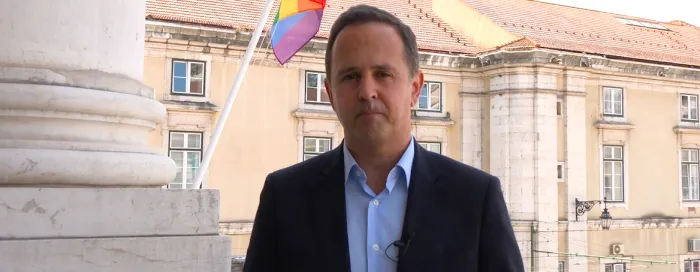Since March 2019, more than 100 Polish regions, counties and municipalities have adopted resolutions declaring themselves to be free from LGBTIQ “ideology”. In light of the increased discrimination and attacks on the LGBTIQ community, the European Parliament declared the European Union an LGBTIQ Freedom Zone. The PES Group in the European Committee of the Regions is following the same path, working to protect LGBTIQ rights and freedoms across cities and regions. For this reason, we launched a campaign together with Rainbow Rose asking local and regional leaders to officially declare their cities and regions as LGBTIQ Freedom Zones, as done by the City of Lisbon.
This interview is part of our series “#ProgressiveLocalStories”, aiming at raising awareness on the many positive initiatives implemented by progressive cities and regions in Europe. Cities and regions have become laboratories for innovative solutions and, with this series, we want to discover how progressive mayors, councillors and presidents of regions put in place policies to promote and protect LGBTIQ rights.
Mayor Medina, your city, Lisbon, is an example when it comes to the promotion and protection of LGBTIQ rights. As progressive leader, what are your ideas on LGBTIQ rights in your territory and in Europe today?
Globally Portugal has been taking steps to achieve greater LGBTIQ equality. However, we should recognise that despite legislative advances and global efforts to respond to discrimination, difficulties persist in access to services, social support, health, employment and education. The idea that LGBTIQ communities have rights and deserve respect unfortunately is not yet fully achieved.
As Mayor of Lisbon, the capital of the country, I am very much aware that explicit and visible support is already a very important step. People must know that the institutions recognise their existence, support their visibility and respond effectively in cases of discrimination and violence. Already for some years now, we have displayed the rainbow flag in the main building of the Council on the International Day Against Homophobia, Transphobia and Biphobia. A simple gesture that shows a clear sign that we celebrate and embrace diversity.
Which concrete actions did you put in place (or are you currently planning) to make your city a city in which the rights of LGBTIQ people are fully respected and promoted?
For the last 20 years the City Council has been a close partner of LGBTI communities and organisations. Back in the mid-90s, the LGBT Community Centre was opened with support from the council. The same year the First Pride happened, and the first LGBT Film Festival was in place. Both would become part of the most relevant events in the city. Our support to all these activities is clear and official.
These initiatives, most of the time, involve Civil Society and I must show appreciation for the work and the participation of NGOs and movements for their contribution to the diversity of this city.
Despite this long history of collaboration, the City Council considered that it would be useful to provide support with a more defined strategy. For that reason, we have recently created a Municipal LGBTI+ Plan.
This document focuses on initiatives on employment, health, education and sports. Among these projects I would highlight the opening of a shelter for LGBTI youth, aged between 16 and 23 years old, in situations of risk or danger, for example when they are expelled from home after revealing their sexual orientation or gender identity.
We have also made available transitional housing for LGBTI adults victims of violence. These two projects are decisive in giving options to people with very difficult life stories and guaranteeing a place where they can reorganise and empower themselves to live a dignified, full life and with all their rights.
The European Commission has proposed its first ever LGBTIQ strategy and the European Parliament has recently declared the EU as an LGBTIQ Freedom Zone. How can the European Union further contribute to advancing equality for LGBTIQ people also in the Balkans and why is this important to your city?
The increase of political actions fueled by hate and creating artificial fear of minorities should be a global concern for all of us. In Lisbon we also approved a vote that declares Lisbon as an LGBTIQ Freedom Zone. It is important to recognise that situations of inequality and discrimination cause unnecessary pain and invisibility, to not only our co-citizens but also close friends and family members.
